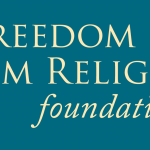Gov. Evers, DHS Announce $2.5 Million in Telehealth Grants for Behavioral Health Providers
Neighborhood access stations to help remove barriers to care
Gov. Tony Evers and the Wisconsin Department of Health Services (DHS) today awarded more than $2.5 million to 27 providers for community behavioral health services that will provide access to mental health and substance use treatment and recovery supports through telehealth. Grantees will use this one-time funding from the American Rescue Plan Act to expand access to these important services by removing location and technology barriers to care. Private behavioral health telehealth stations with the tools needed for virtual appointments will be set up in central locations for people who may be struggling to access the services they need. This includes community centers, food pantries, homeless shelters, libraries, long-term care facilities, and schools.
“Every Wisconsinite should have access to quality, affordable health care they need when they need it, and that includes behavioral and mental health services,” said Gov. Evers. “These grants will help ensure more folks can meet with a provider no matter where they live, closing gaps in services and building a behavioral health system that works for everyone at a time when treatment and recovery supports for mental health and substance use are more important than ever.”
Through these grants we are promoting trauma-informed and culturally responsive behavioral health services by meeting clients where they are,” said DHS Secretary-designee Karen Timberlake. “These grants will make it possible for behavioral health providers across Wisconsin to create secure, community-based access points for behavioral health services.”
From March until May of this year, behavioral health providers were invited to partner with community-based organizations and apply for funding to increase access to telehealth services. DHS received 38 applications through this competitive grant process. Providers who submitted applications that most aligned with the goals of this funding opportunity received grants. Awardees will begin receiving funding this fall and contracts will last for one year. All of the neighborhood telehealth access points should be operational by no later than summer 2023.
The grants announced today are part of a series of investments funded by the American Rescue Plan Act to make behavioral health services more available and accessible across Wisconsin. Last year, Gov. Evers and DHS committed $47 million in additional Substance Abuse Prevention and Treatment Block Grant and Community Mental Health Services Block Grant funding through 2025 to increase community-level prevention, intervention, treatment, and recovery supports through partnerships with tribal, county, and nonprofit agencies. Earlier this year, Gov. Evers announced(link is external) that nearly every school district across the state, including more than 450 local education agencies, will be awarded funds through the governor’s $15 million “Get Kids Ahead” initiative(link is external).
Call 211 to learn about community mental health and substance use services in Wisconsin.
NOTE: This press release was submitted to Urban Milwaukee and was not written by an Urban Milwaukee writer. While it is believed to be reliable, Urban Milwaukee does not guarantee its accuracy or completeness.
Mentioned in This Press Release
Recent Press Releases by Wisconsin Department of Health Services
Wisconsin Wayfinder Celebrates One Year of Supporting Families with Special Health Care Needs
Dec 3rd, 2024 by Wisconsin Department of Health ServicesMore than 2,200 families and nearly 670 providers and professionals helped
Salmonella Infections Linked to Cucumbers Sold in Wisconsin
Nov 29th, 2024 by Wisconsin Department of Health ServicesThree Wisconsinites ill, cucumbers recalled, Wisconsinites urged to check homes for them
DHS Encourages Wisconsinites to ‘Be Antibiotic Aware’ This Respiratory Virus Season
Nov 18th, 2024 by Wisconsin Department of Health ServicesUsing antibiotics when they're not necessary can do more harm than good





















